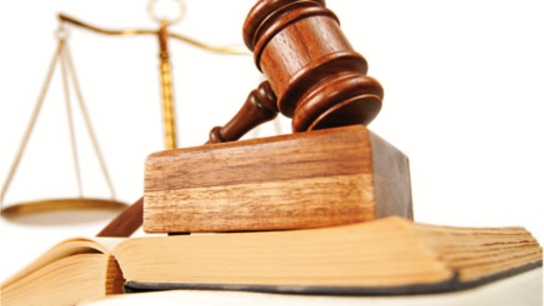Editorial
Much Ado About Hijab

The Court of Appeal last week granted
Lagos public school students right to
wear hijab (an Islamic head scarf) in school and gave Muslims across the country a huge reason to celebrate, but how it would further divide the people of Nigeria is not considered.
A lower court had banned the use of the scarf and relied on the constitution to give its ruling. But the ruling last week might encourage female Muslims across Nigeria to take their hijab to public schools across the country and offend the sensibilities of non-Muslims.
While court rulings are expected to be obeyed, it is becoming increasingly necessary for judges and all persons that preside over issues that affect the politics, religion and ethnicity of Nigerians to be a little more circumspect. At all times, they must keep above every other consideration, the peace and unity of the country.
It is unbelievable that supposedly highly respected judges who do not need any lecture on the secularity of Nigeria, and who know the increasing need for peace and unity in Nigeria would support an issue that is most likely to polarise the polity, if not incense it.
This is moreso because, when some Islamic fanatics started it in some States, the populace kicked, the authorities said No! To note the extent of provocation, Muslim students wore their scarfs to a Christian missionary school. In fact, when the State Government failed to stop it, Christians also appeared in their choir robes, Alladura in their gowns,- etc.
Thus far, it is sounding like funny, but these are the fabrics with which bloodbaths are made. At a time Nigeria can do without more conflicting issues, it is disheartening that an issue that will not add to the academic good of anybody is being used to disrupt the system and perhaps cause another loss of lives and property.
The Tide thinks that the need for uniforms in schools have not expired. To the extent a child cannot be disciplined enough to wear the prescribed uniform of any school, the reasonable thing to do has always been to try the next shop. But to insist on changing laid down rules of an institution is plain lawlessness.
The subject becomes even more suspect when viewed from the fact that these students have until now gone to school with the approved uniform and suffered nothing. Besides, if it becomes of utmost necessity that they wear their hijab always, nobody stops Muslims from establishing their schools and doing as they please.
It is nothing less than an affront to want to impose one’s own ways on other persons. Sadly, if allowed, the situation will only serve to underscore avoidable differences among the children, and ultimately promote religious intolerance. Religion which is basically personal should not be allowed to destroy the nation because people are first humans, then, Nigerians before they are religionists.
We are compelled to note that some of the issues that have tended to cause division among Nigerians have been championed by Muslims and it is not good. While they claim to be a religion of peace, they have always tried to over-step their bounds with reckless, and audacious impunity.
Only recently, the peace of Nigeria has been stretched to some limits by the activities of some herdsmen, who kill persons while looking for grazing land. This has also set in motion a National Grazing law that will make or mar the country. Also still painful is the beheading of a Christian lady in Kano during the last Ramadan and the most recent killing of a female preacher at Kubwa, Abuja.
Is it possible that Muslims are emboldened to do the extreme because Nigeria has once again registered in an Islamic Alliance. It is sad that some Muslims criminally abducted young girls from the Christian South and impregnated them and force them to convert to Islam, like the case of Ese Oruru.
We expect that the Federal Government will take note of these infractions and do something about every single one of them before some persons run out of patience. We insist that the hijab matter be taken back to where it was, if we expect to see a peaceful and prosperous Nigeria in the future. By the time the children are fed on the bread of disunity that this hijab represents, Nigeria will be history.
Editorial
Resolve Rumuwoji Market Issues, Others

Editorial
As NDG Ends Season 2

Editorial
Beginning A New Dawn At RSNC

-

 News4 days ago
News4 days agoAmend Constitution To Accommodate State Police, Tinubu Tells Senators
-

 Politics4 days ago
Politics4 days agoSenate Urges Tinubu To Sack CAC Boss
-
Business4 days ago
Crisis Response: EU-project Delivers New Vet. Clinic To Katsina Govt.
-
Business4 days ago
President Tinubu Approves Extension Ban On Raw Shea Nut Export
-

 News4 days ago
News4 days agoDisu Takes Over As New IGP …Declares Total War On Corruption, Impunity
-
Business4 days ago
President Tinubu Extends Raw Shea Nuts Export Ban To 2027
-
Business4 days ago
Fidelity Bank To Empower Women With Sustainable Entrepreneurship Skills, HAP2.0
-
Sports4 days ago
NDG: Rivers Coach Appeal To NDDC In Talent Discovery

